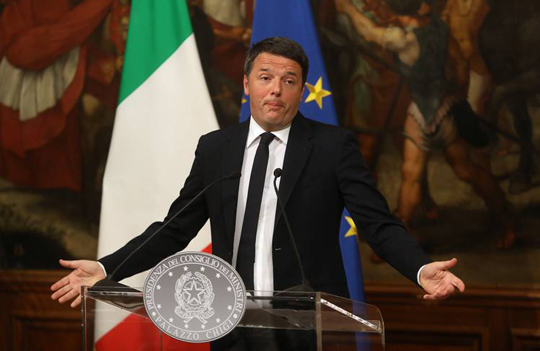Washington, Jan 25: US President Donald Trump's legal team was preparing his defence on Saturday after the Democratic prosecutors ended their marathon 24-hour argument to oust him from office during the Senate trial.
In the arguments spread over three days ending on Friday, the Democrat prosecutors from the House of Representatives that had impeached Trump last month, mostly rehashed the testimonies from the hearings before their committees during the investigation and statements in their chamber.
Like the Democrats' arguments, the Trump defence's counter-arguments, also with 24 hours allotted for it, will be mind-numbing monologues for the most part and the real drama will be on a tussle between the two parties on calling witnesses.
The Democrats failed in their repeated attempts on the first day of the trial on January 28 to include calling testimonies from witnesses in the rules of procedure, but they will get another chance to press their case when the defence rests.
There is a tense wait speckled with speculations to see if the Democrats can get four Republicans to defect and vote to call witnesses after failing to sway a mass defection to get the two-thirds majority to convict Trump.
Trump is charged with abuse of power and obstruction of Congress in the trial presided over by Supreme Court Chief Justice John Roberts with the Senators acting as jurors.
As the time allotted for the prosecution wound down on Friday, the leading prosecutor, Adam Schiff, demanded that the Republican-controlled Senate convict and remove Trump from office, because he was an "imminent threat" to the US and the nation could not wait for the election to throw him out.
Schiff, who heads the House Intelligence Committee that investigated Trump, gave them a personal warning: "No matter how close you are to this president, do you think for a moment that if he felt it was in his interest, he wouldn't ask you to be investigated?
Jerry Nadler, the head of the Judicial Committee that framed the charges in the impeachment, called Trump a "dictator".
Instead of a full sitting of eight hours, the defence will present its case for only two to three hours on Saturday in what Trump's lawyer Jay Sekulow called a "trailer (for) coming attractions" in the defence counterarguments.
They will get to use their remaining time next week.
The shorter session starting with fuller presentations next week is partly a concession to media savvy Trump who tweeted that daytime Saturday when his defence was slated is a "death valley" on TV as few viewers would watch a political event at that time.
With Trump certain to be acquitted because the Democrats do not have the two-thirds vote, the impeachment process and the Senate trial are only meant to be an extended media show in their campaign for the November election.
The Democrats want to spiff up the TV spectacle by calling former National Security Adviser John Bolton and Trump's acting Chief of Staff Mick Mulvaney as witnesses.
Trump could exercise his executive privilege to stop them from testifying, in which case they could go to court to compel their appearance at the Senate trial extending its duration by months if not weeks.
The House charged him with obstruction of Congress because he refused to allow some of this staff to testify and release documents requested by the House investigators.
The Republicans, who want a quick end to the trial, can also counter the Democrats' request for witnesses by calling former Vice President Joe Biden and his son, Hunter, to testify in order to embarrass them and their party.
The Bidens are at the root of the abuse of power charges against Trump.
Trump had asked newly-elected Ukrainian President Volodymyr Zelentsky in a July phone call to investigate the Bidens' dealings in his country as a "favour".
Democrats say that this was inviting foreign intervention in US elections because Joe Biden is the leading Democratic party candidate for the nomination to oppose him.
Moreover, they say that he froze about $400 million in Congressionally-approved military aid for pressure Zelentsky to order the probe and this endangered US national security as Ukraine is at war with Russia.
chiff and the other prosecutors said delaying the aid was an attempt at a quid pro quo.
Zelentsky has said that he did not feel pressured by Trump.
Hunter Biden, who was removed from the Navy allegedly due to drug use and had no energy business experience landed a directorship in a Ukrainian gas company with monthly payments reportedly between $50,000 and $83,000 while his father was overseeing Washington's dealings with Kiev.
The former Vice President has publicly admitted that he got the Ukrainian leaders to fire the prosecutor investigating his son's company.
The Republicans have said that the son's appointment was unethical and the father had the prosecutor removed to protect his son's company.
In their arguments, the Democratic prosecutors said there was nothing wrong in Hunter Biden getting the job and his father had the prosecutor dismissed because he was corrupt.
The defence team is expected to assert that Trump withheld the aid because he wanted to be sure that the new government was not corrupt and the aid was released without a probe.
Anticipating the argument, Schiff said that Trump had allowed the aid to go forward only because it became known and his intent still made him guilty.
In another development impinging on the Trump case, a secret recording said to be of the president ordering the firing of Marie Yovanovitch as US ambassador to Ukraine in 2018 has surfaced.
She was one of the witnesses at the House investigations of the charges against Trump.






Comments
Add new comment